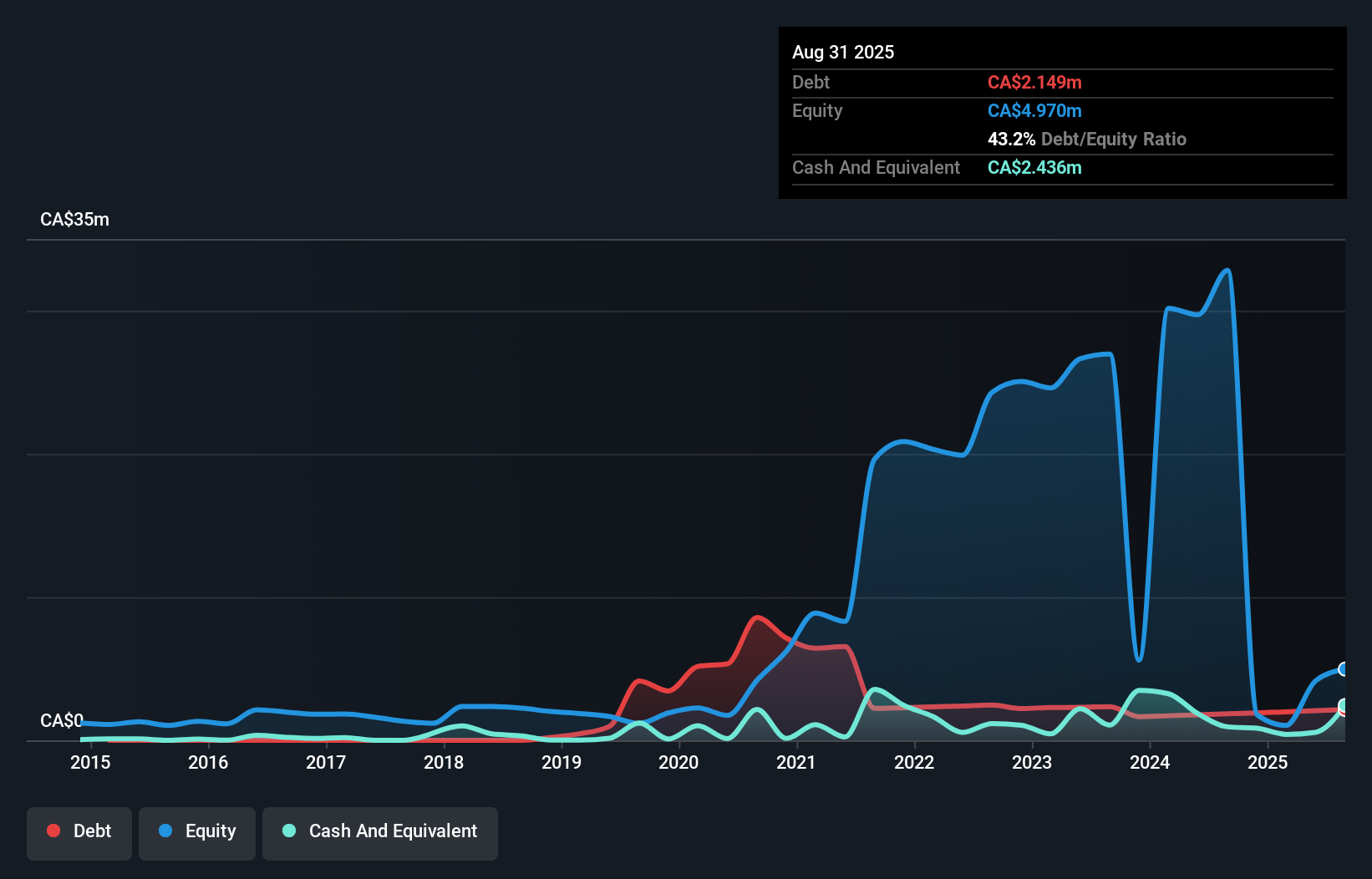- Canada
- /
- Metals and Mining
- /
- TSXV:BAU
Blue Star Gold (CVE:BAU) Has Debt But No Earnings; Should You Worry?
Howard Marks put it nicely when he said that, rather than worrying about share price volatility, 'The possibility of permanent loss is the risk I worry about... and every practical investor I know worries about.' So it might be obvious that you need to consider debt, when you think about how risky any given stock is, because too much debt can sink a company. As with many other companies Blue Star Gold Corp. (CVE:BAU) makes use of debt. But is this debt a concern to shareholders?
When Is Debt A Problem?
Generally speaking, debt only becomes a real problem when a company can't easily pay it off, either by raising capital or with its own cash flow. If things get really bad, the lenders can take control of the business. However, a more usual (but still expensive) situation is where a company must dilute shareholders at a cheap share price simply to get debt under control. Having said that, the most common situation is where a company manages its debt reasonably well - and to its own advantage. When we examine debt levels, we first consider both cash and debt levels, together.
What Is Blue Star Gold's Debt?
The image below, which you can click on for greater detail, shows that at August 2025 Blue Star Gold had debt of CA$2.15m, up from CA$1.84m in one year. But it also has CA$2.44m in cash to offset that, meaning it has CA$287.6k net cash.

How Strong Is Blue Star Gold's Balance Sheet?
The latest balance sheet data shows that Blue Star Gold had liabilities of CA$701.5k due within a year, and liabilities of CA$2.16m falling due after that. Offsetting this, it had CA$2.44m in cash and CA$444.4k in receivables that were due within 12 months. So these liquid assets roughly match the total liabilities.
Having regard to Blue Star Gold's size, it seems that its liquid assets are well balanced with its total liabilities. So while it's hard to imagine that the CA$36.3m company is struggling for cash, we still think it's worth monitoring its balance sheet. Succinctly put, Blue Star Gold boasts net cash, so it's fair to say it does not have a heavy debt load! There's no doubt that we learn most about debt from the balance sheet. But it is Blue Star Gold's earnings that will influence how the balance sheet holds up in the future. So if you're keen to discover more about its earnings, it might be worth checking out this graph of its long term earnings trend.
View our latest analysis for Blue Star Gold
Since Blue Star Gold has no significant operating revenue, shareholders probably hope it will develop a valuable new mine before too long.
So How Risky Is Blue Star Gold?
Statistically speaking companies that lose money are riskier than those that make money. And in the last year Blue Star Gold had an earnings before interest and tax (EBIT) loss, truth be told. Indeed, in that time it burnt through CA$3.3m of cash and made a loss of CA$7.1m. Given it only has net cash of CA$287.6k, the company may need to raise more capital if it doesn't reach break-even soon. Overall, its balance sheet doesn't seem overly risky, at the moment, but we're always cautious until we see the positive free cash flow. There's no doubt that we learn most about debt from the balance sheet. But ultimately, every company can contain risks that exist outside of the balance sheet. Be aware that Blue Star Gold is showing 6 warning signs in our investment analysis , and 4 of those are a bit concerning...
If you're interested in investing in businesses that can grow profits without the burden of debt, then check out this free list of growing businesses that have net cash on the balance sheet.
Valuation is complex, but we're here to simplify it.
Discover if Blue Star Gold might be undervalued or overvalued with our detailed analysis, featuring fair value estimates, potential risks, dividends, insider trades, and its financial condition.
Access Free AnalysisHave feedback on this article? Concerned about the content? Get in touch with us directly. Alternatively, email editorial-team (at) simplywallst.com.
This article by Simply Wall St is general in nature. We provide commentary based on historical data and analyst forecasts only using an unbiased methodology and our articles are not intended to be financial advice. It does not constitute a recommendation to buy or sell any stock, and does not take account of your objectives, or your financial situation. We aim to bring you long-term focused analysis driven by fundamental data. Note that our analysis may not factor in the latest price-sensitive company announcements or qualitative material. Simply Wall St has no position in any stocks mentioned.
About TSXV:BAU
Blue Star Gold
Engages in the acquiring, exploring, and evaluating mineral properties in Canada.
Medium-low risk with adequate balance sheet.
Market Insights
Community Narratives



